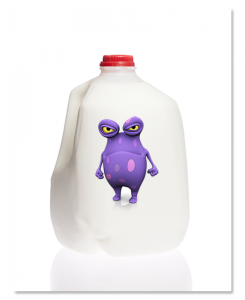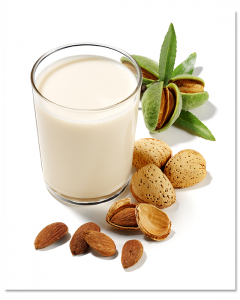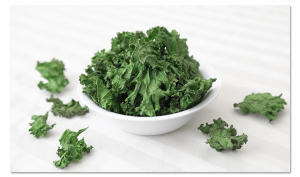Ditch the Dairy
There’s a monster in your milk that could set off a chain reactions of inflammation, hormone issues, and dietary malfunction in your body. [1]
Are you bothered by any of these health issues?
- Bloating
- Constipation
- Acne
- Dry skin
- Heartburn
- Food cravings
- Inflammation
If so, dairy may be the culprit. I know: it seems illogical that a food so long touted as the pinnacle of bone health could actually have so many adverse effects, but the science points to dairy as a far more mixed bag than we may realize.
Is the Cheese Platter Your Kryptonite?
There is a biochemical reason why you find it psychologically challenging to quit dairy products. Take cheese, for example. It is one of the most addictive foods because it contains “casomorphins”—opiate-like compounds that create that “can’t put it down” syndrome. Combine that with cheese’s creaminess and deliciously salty nature and it’s hard to walk away.
I didn’t think I had a problem with dairy addiction until I encountered the Cowgirl Creamery in Point Reyes. After indulging there, it became clear that I had a dairy issue! Once I quit it, my bowels and I became far happier, which is what led me to dig deeper into the relationship between dairy and hormonal health.
And you know me: I’m about trading up, not simply giving up, so I traded my Cowgirl Creamery cheese for delicious hummus, which hits my creamy and slightly salty flavor palate without all the havoc that dairy wreaks on my body. Another fabulous substitute: coconut cream or almond milk. They offer a lovely alternative to cows milk—and I even use them in creamy style soups.
Dairy and Your Gut
Dairy can be a real gut irritant. For starters, a lot of us have undiagnosed dairy sensitivities or allergies, which means we make our gut unhappy with every cup of yogurt that we eat.
Also, dairy intake has been shown to contribute to low-grade systemic inflammation, which is an important developmental factor in cardiovascular disorders, diabetes, metabolic ailments, and chronic disease. This is more than a little tummy upset. For many, dairy represents a gateway to a larger world of systemic and chronic health problems. [2]
Dairy can also lead to microbiome damage, which can trigger autoimmune disorders—all because of inflammatory reactions to irritants like casein from cow’s milk (and gluten from wheat). Even if you don’t have a dairy issue, per se, casein from dairy often cross-reacts with gluten, so if you’re a Celiac or you have NCGS (non-Celiac gluten sensitivity), need to be careful when you eat dairy. [3]
 Dairy and Your Thyroid
Dairy and Your Thyroid
Perchlorate, which is a chemical oxidizer and a pollutant, is found in many environmental sources—including cow’s milk. Perchlorate can negatively impact thyroid function by causing the body to excrete iodine, inducing hypothyroidism in some cases. It can also cause fetuses in utero to be deprived of necessary thyroid hormones for proper first trimester development. While cow’s milk is far from the only source of perchlorate, eliminating it (along with other sources of environmental toxins), can dramatically reduce aggression toward your thyroid function.
Here’s another concern about dairy: growth hormones. Milk—even pure, raw, and straight from the cow—contains hormones. Organic doesn’t matter, either. Milk from a pregnant cow is still filled with hormones that mingle with your own—and can cause untold amounts of chaos. [4]
Other Downsides of Dairy
If you have skin conditions like acne, psoriasis, and eczema, consider tossing that milk mustache out of your beauty routine. No amount of topical creams, moisturizers, lotions or even prescriptions will fix the problem if the source is dietary. In fact, the same hormonal disruptions that cause acne and other skin irritations also contribute to carcinogens and chronic diseases that are so prevalent in Western societies. [5]
Low-fat dairy products—which are deemed to be the pinnacle of milky goodness—are also associated with anovulatory infertility in women who consume two or more servings per day. [6] And if that’s not enough, there are no randomized, controlled studies to verify the widely recommended dairy intake of 2-3 servings daily. That’s right: We’re trusting our health to people who haven’t even thoroughly studied what they’re saying. [7]
But Don’t We Need Dairy?
We’ve been led to believe that without milk and other dairy products, our bones will crumble into dust and we’ll have osteoporosis before we’re 35. Plus, don’t dairy products help us lose weight? After all, skim milk means thin thighs, right?
Big Food is very powerful. The dairy industry has a well-oiled marketing machine behind it. Companies like Starbucks stand to profit from your daily milk habit. We’re told that dairy is the cornerstone of good health and we believe it—until we peel the layer back and see the effects dairy can have on our health and our hormones. 
Dairy Alternatives
It’s possible to get your daily dose of calcium from non-dairy sources. Did you know that a serving of seven sardines contains 32% daily value of calcium? Two cups of chopped kale also contain 19% daily value of calcium, and when you add that to a diet rich in other dark leafy greens, you’ll be hitting your daily calcium intake with no trouble at all.
Keep in mind that calcium isn’t the only mineral that you need for bone health. It must be kept in proper balance with both magnesium and vitamin D3 to get the full benefits of strong bones and teeth. Magnesium-rich foods also include spinach and dark leafy greens, as well as nuts and seeds. It’s hard to get enough vitamin D from food alone, so consider adding a high quality vitamin D3 supplement to your daily regimen. Opt for 2,000 IU daily at least, as greater than 700 IU is needed for bone density protection and improvement.
Finally, try removing dairy from your diet for 21 days. During that time, keep notes about how you feel. When the 21 days are up, reintroduce a single dairy product and see how you feel. Did the bloating return? Do you have headaches, constipation, mood swings, or itchy skin again? Dairy symptoms can vary widely due to our bio individuality. The importing thing is to pay attention to what’s happening to your body.
Make your hormones happy. Say “later” to your latte and “ciao” to cheese. Your body—and a lot of baby cows—will thank you.
Click here to purchase The Hormone Reset Diet.
References
[1] Jo, J., Garssen, J., Knippels, L., & Sandalova, E. “Role of Cellular Immunity in Cow’s Milk Allergy: Pathogenesis, Tolerance Induction, and Beyond,” Mediators of Inflammation, 2014, 249784. doi:10.1155/2014/249784
[2] Da Silva MS and Rudkowska I. “Dairy nutrients and their effect on inflammatory profile in molecular studies,” Endocrinology and Nephrology, 2015 Jan 14. doi: 10.1002/mnfr.201400569.
[3] Severance EG, Yolken RH, & Eaton WW. “Autoimmune diseases, gastrointestinal disorders and the microbiome in schizophrenia: more than a gut feeling,” Schizophrenia Research, 2014 Jul 14. doi: 10.1016/j.schres.2014.06.027.
[4] Pearce, E N, MD, MSc and Braverman, L E, MD, “Environmental Pollutants and the Thyroid,” Best Practice & Research Clinical Endocrinology & Metabolism, 2009, doi:10.1016/j.beem.2009.06.003
[5] Melnik, B., “Milk consumption: aggravating factor of acne and promoter of chronic diseases of Western societies,” JDDG: Journal of the German Society of Dermatology, 7: 364–370. doi: 10.1111/j.1610-0387.2009.07019.
[6] J.E. Chavarro, J.W. Rich-Edwards, B. Rosner, and W.C. Willett, “A prospective study of dairy foods intake and anovulatory infertility,” Hum. Reprod. (2007) 22 (5): 1340-1347 doi:10.1093/humrep/dem019
[7] Weaver CM, “How sound is the science behind the dietary recommendations for dairy?,” American Journal of Clinical Nutrition, 2014 May doi: 10.3945/ajcn.113.073007.
